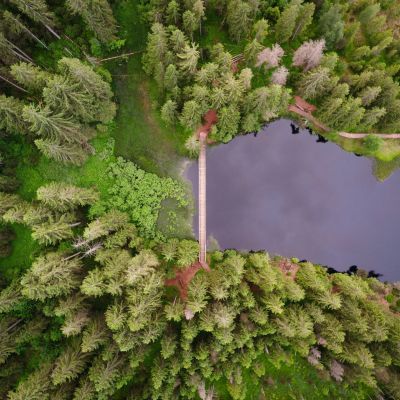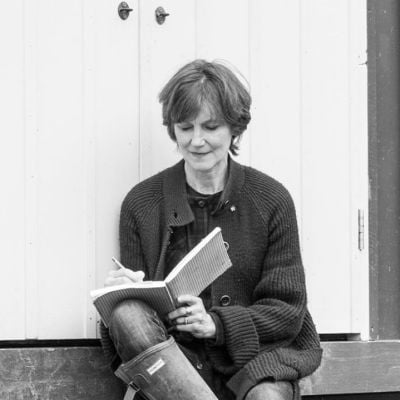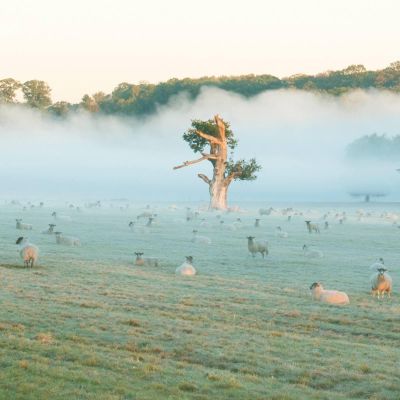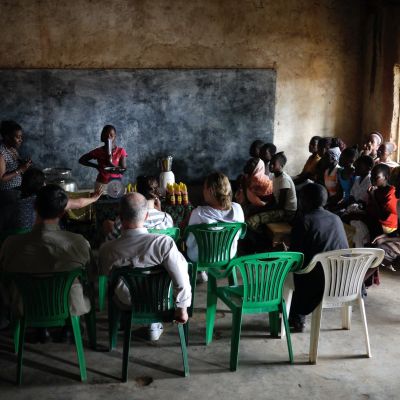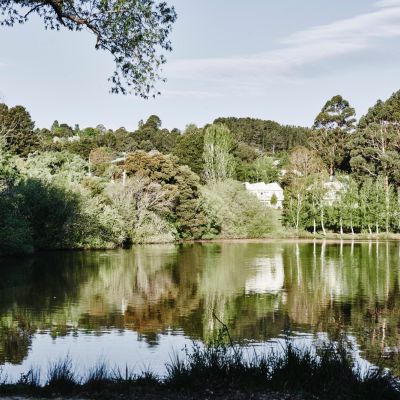Back To The Land
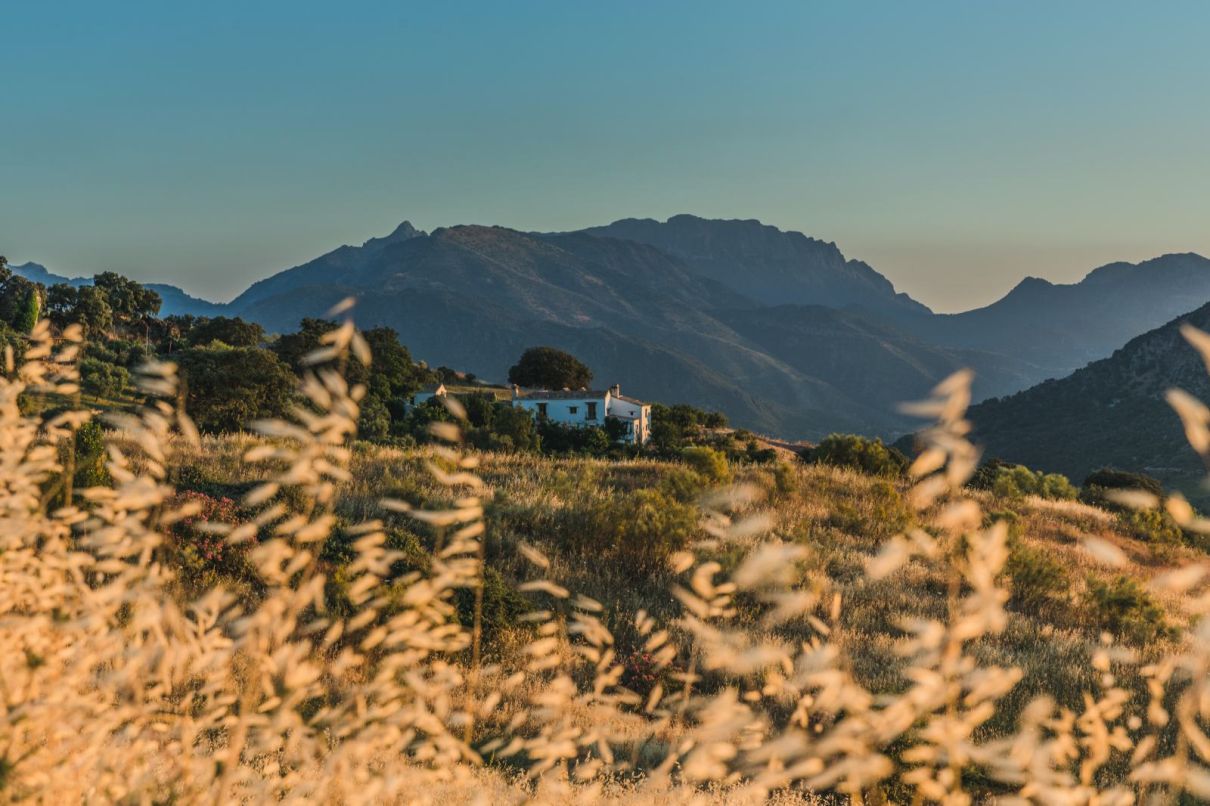
Six beautiful hotels in Europe, South Africa and Brazil, that allow guests to reconnect with nature.
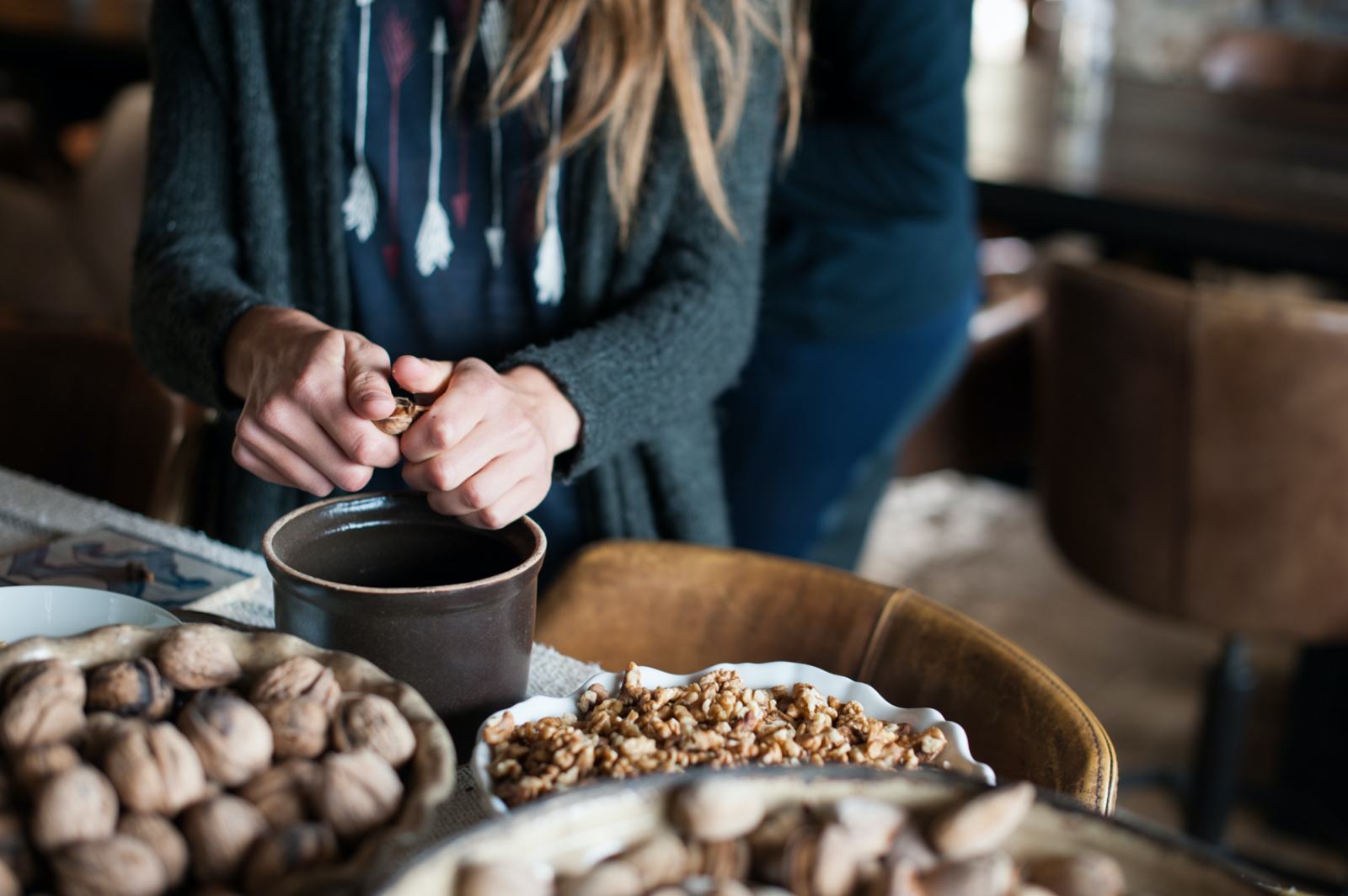
People are turning their backs on cities and finding new meaning in a life lived on the land. We look at six examples of hospitality projects that embrace the permaculture principles of organic farming and gorgeous fresh produce.
Finca La Donaira, Andalucía, Spain
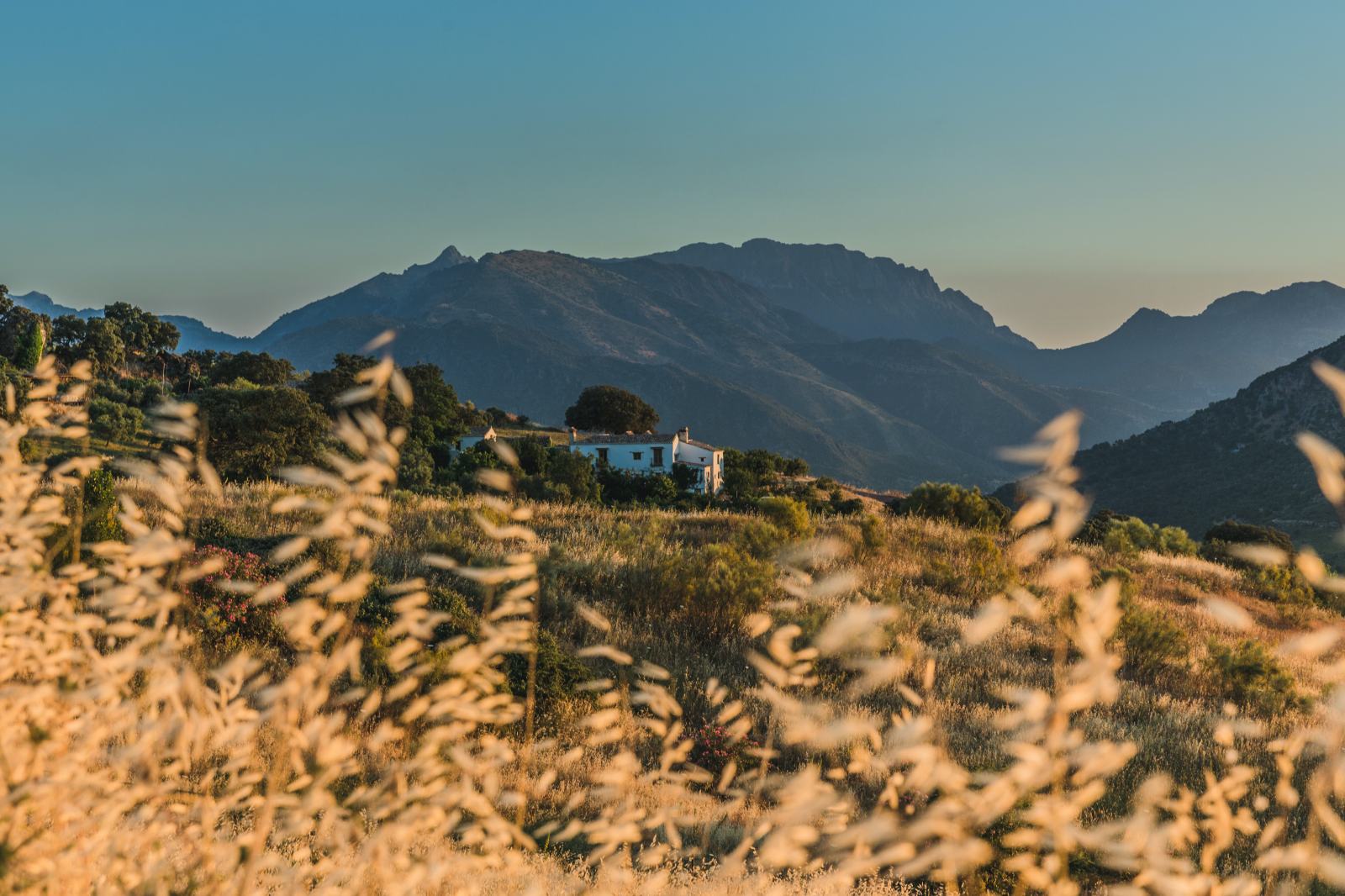
Set on 1,730 acres of land in the middle of the dramatic Sierra de Grazalema Natural Park in Andalusia, Finca La Donaira is a great example of luxury agricultural hospitality: a movement that celebrates farm-to-table food and authenticity. It is built in an old Spanish farmhouse tucked between protected oak forests and a biodynamic farm.
Although a rustic vibe pervades the house — think worn brown-leather seats; wreathes of dried flowers; trough-like sinks; and beamed ceilings — the style is very much country living for the finely tuned design eye. Local craftspeople painstakingly restored this traditional cortijo (‘farmhouse’) over many years using traditional methods; its architecture and interiors celebrate natural materials, ranging from stone floors and lime-plastered walls to tiled roof, leather, wood and copper.
La Donaira is ahead of the sustainable curve. The biodynamic farm is based on the principles of Rudolf Steiner: “Our approach to farming is open and experimental: a mix of tradition and innovation but based on permaculture design principles,” the owners explain. It also provides guests with gorgeous meals, olive oil and wines. All dishes are based on ingredients that have been grown or foraged on the property, supplemented by local produce sourced from a network of small artisan producers.
La Donaira has it all: ancient oak trees; olive and almond groves hidden deep in green valleys; organic vegetable plots; and a vineyard. The lodge also keeps sheep, goats, rare-breed cattle, hens, and bees, and the owners breed Lusitano horses (the world’s oldest saddle horse) according to natural horsemanship principles. With the method known as horse whispering, the 70 noble horses are trained without stress or fear.
To stay at the cutting edge, La Donaira hosts interesting thinkers from all walks of life; depending on the event, natural beekeepers, rammed earth architects, bird nest designers, influential farmers and artists will gather around a communal table and discuss.
São Lourenço do Barrocal, Alentejo, Portugal
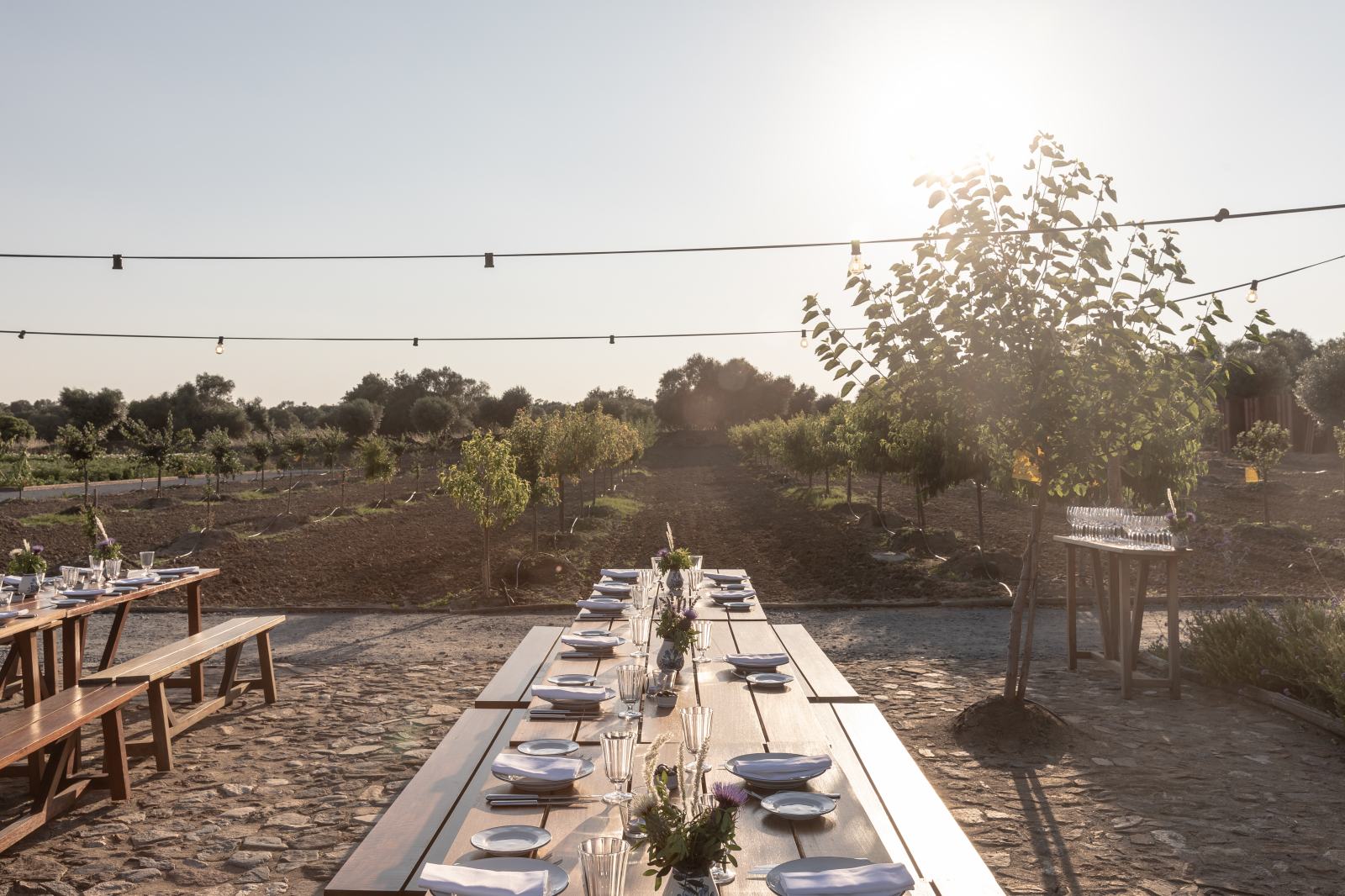
José António Uva, owner of São Lourenço do Barrocal in a remote part of Monsaraz, Portugal, has brought his 1820 family farm back to life, turning it into an elegant retreat that sits among century-old olive trees and cork oaks. “Here, there is a saying I love,” Uva explains. “You look after vineyards for yourself, grow olive trees for your children and cork oaks for your grandchildren. That is my vision of a sustainable future.” In applying these principles, Uva created a ‘slow luxury’ retreat geared to future generations.
Everything is vast in the Alentejo: endless vineyards, fields of olive trees, and century-old cork oak trees form a landscape that has not changed for centuries. To a certain extent, there is something almost biblical about the region. Uva returned to his home country in 2002 and decided to move into a small farm building on the property to see if, and how, he could fix it up; it had fallen into utter disrepair during Salazar’s dictatorship.
Uva soon realised that when it came to measuring and assessing sustainable solutions, people always get it wrong: “Sustainability can’t be reduced to certifications, checklists, and consulting firms that follow protocols using set variables. Following a much more pragmatic approach in this arid part of the country, I found that sustainability is what endures from generation to generation. This sustains life on a broader timeline and brings actual longevity,” he explains, while admitting that no banker could ever think like that. The plan, therefore, had to be as vast as the land.
Uva opted for a vernacular architecture (using local materials and knowledge), which was designed by local architect (and Pritzker Prize winner) Eduardo Souto de Moura. Uva also adopted a completely organic approach to farming, including the estate’s olive oil, cork, and wine production. With these actions, Uva has set a very high bar for luxury, sustainable hotels.
Uva’s wife Ana Anahory, a successful interior architect, worked on the interiors. A palette of muted colours, ceramics designed in collaboration with Caldas da Rainha, and pots of field flowers, hand-crafted furniture created with young carpenter Tomas Viana, all create an atmosphere that exudes quiet luxury and attention to detail. Anahory also reclaimed the old doors and beams to turn them into coffee tables. Unique to the property, the organic vegetable garden thrives in every season, while the 6,000-year-old menhir seems to not even notice years, decades, and centuries that go by.
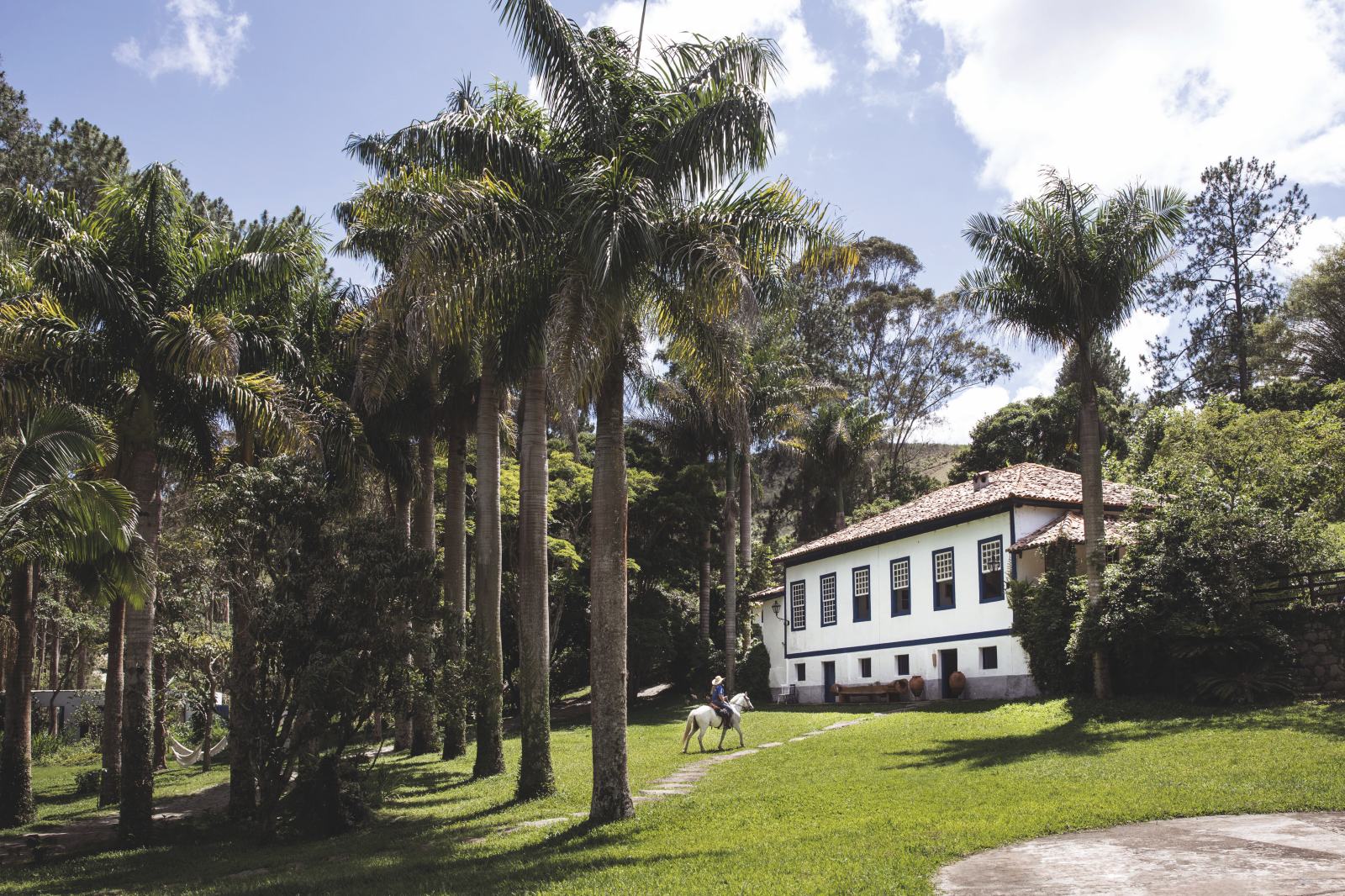
In southern Brazil, Fazenda Catuçaba is much more than a hotel: set on the edges of the Serra do Mar State Park, it is the doorway to understanding the awe-inspiring power and fragility of nature.
Set up by Frenchman Emmanuel Rengade, this 19th century plantation has been converted into a unique luxury resort. Given that Catuçaba means ‘good land’ in the local Tupi-Guarani language, one can’t help but notice that nature thrives on the grounds of the estate. Everywhere you look, there are chickens, cows, ducks, horses and dogs. Abundance also comes to the kitchen, where fresh produce collected from the estate’s permaculture vegetable garden arrives twice daily.
At Fazenda Catuçaba, Rengade takes it a step further. Art, design, architecture and sustainable agriculture are also used to build environmental awareness. Inside the old building, guestrooms are decorated with local crafts and Brazilian-designed furniture. On top of a hill sits Bamboo Cathedral, a landscape project by designers Humberto and Fernando Campana. A serene ring of towering bamboo, the project was conceived to allow visitors to reconnect with nature without any added thrills. Similarly, Geneviève Maquinay’s sculptures, crafted from recycled local materials, blend into their natural surroundings.
These initiatives naturally led to another architectural experiment with Brazilian-Uruguayan firm MAPA, the makers of Minimods: high-quality, fully sustainable prefabricated homes (or, in this case, hotel lodgings) that collect their own water and electricity, effectively taking them off the grid. Such an approach resonates well with the village’s proximity to the Mata Atlantica rainforest, a unique ecosystem, part of which is listed by UNESCO as a World Heritage Site. Since its conservation is essential for the future of the planet, Fazenda Catuçaba makes sure to apply and promote environmentally friendly practices on an everyday basis. Waste and compost are managed on the property and the hotel uses only biodegradable products.
Moreover, social accountability is a reality in Catuçaba. Most of the hotel employees are locals from the village who have been trained by the hotel and are paid more than the average local wage, leading to a trickle-down of wealth in the region.
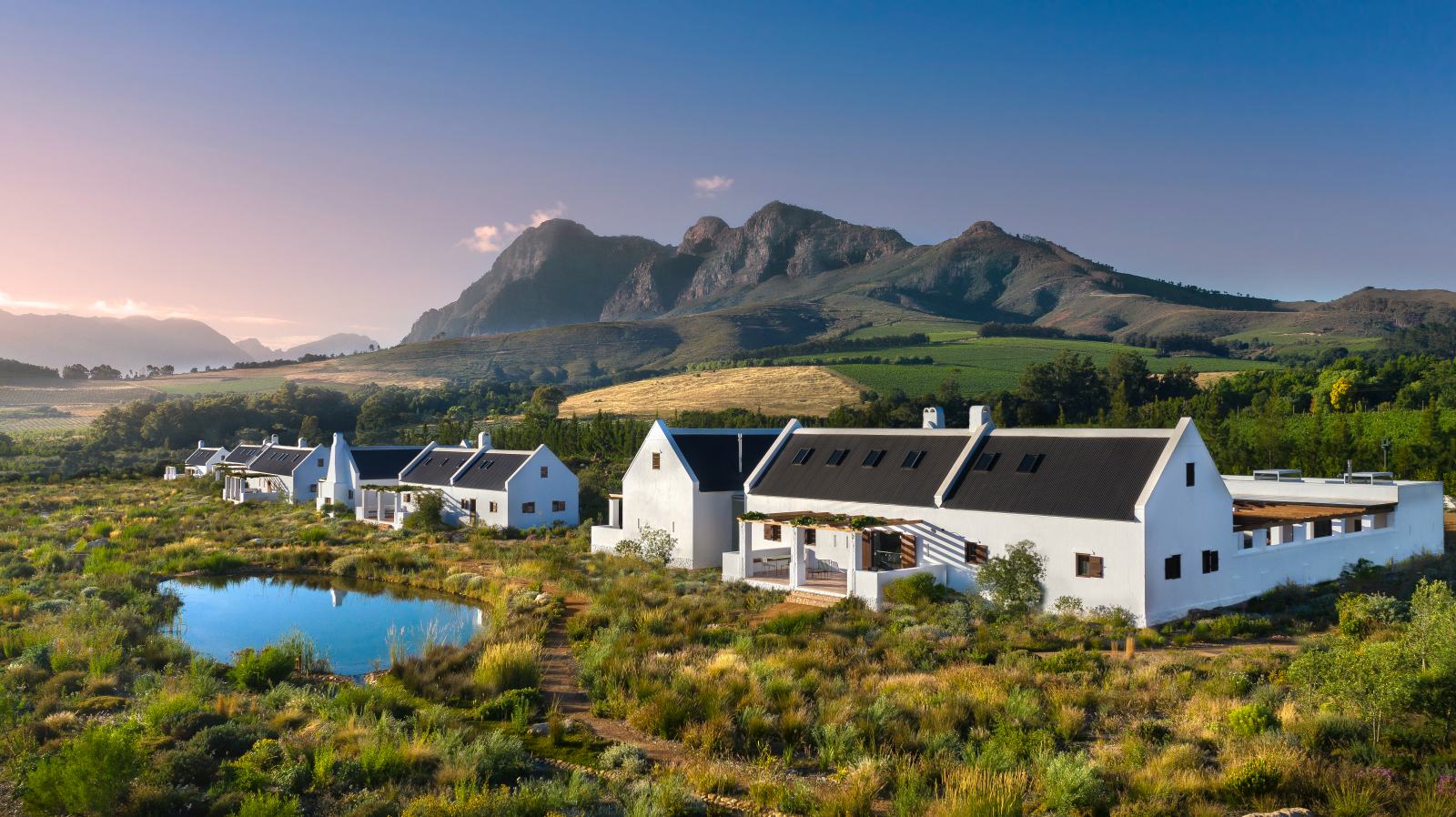
East of Cape Town, Babylonstoren is a unique kind of farm. Spread over 200 hectares, it welcomes countless alleys of fruit trees, a magnificent greenhouse reminiscent of London’s Crystal Palace (on a smaller scale) and a Cape Dutch style manor dating back to 1777. Babylonstoren is one of those timeless gems. The garden takes its cue from the Company’s Garden of Cape Town, which supplied passing ships to the Cape with food in the 1600s.
Commissioned to plan the layout of the garden, French architect Patrice Taravella imagined 15 clusters spanning vegetable areas, stone and pome fruits, nuts, citrus, berries, bees, herbs, ducks and chickens, a prickly pear maze, and more. Gravity feeds water from a stream by rills into the garden, flowing through ponds planted with edible lotus, nymphaea lilies and waterblommetjies. Every one of the 300-plus varieties of plants in the garden is edible or has medicinal value. They are also grown as organically as possible and in a biologically sustainable manner. The fruit and vegetables from the garden are harvested all year round for use in two farm-to-fork restaurants. Along the edge of the garden, a natural stream flows from the Simonsberg Mountain to the Berg River, creating a space for indigenous wild olives to flourish. Head gardener Liesl van der Walt and her team tend the plants, turning the property into a botanical haven one can learn so much from.
At night, fresh produce packed in crisp linen is hand delivered to the doorstep of every cottage (‘farmers’ houses’); every family is invited to prepare its own dinner in the beautifully appointed kitchen, facing the garden; sharing, learning and cooking rather than ordering from a menu. In the greenhouse, the freshly picked vegetables are set out on rough granite tables: purplish red onions, cabbage that seems too green to be real, and leeks with their flowers still in bloom. This is an ideal retreat for city dwellers who long for the authenticity of the country and children that are eager to learn. Guests are further invited to activities such as fruit picking and gardening classes, in between organic-chic meals featuring new varieties of vegetables.
Castello di Vicarello, Tuscany
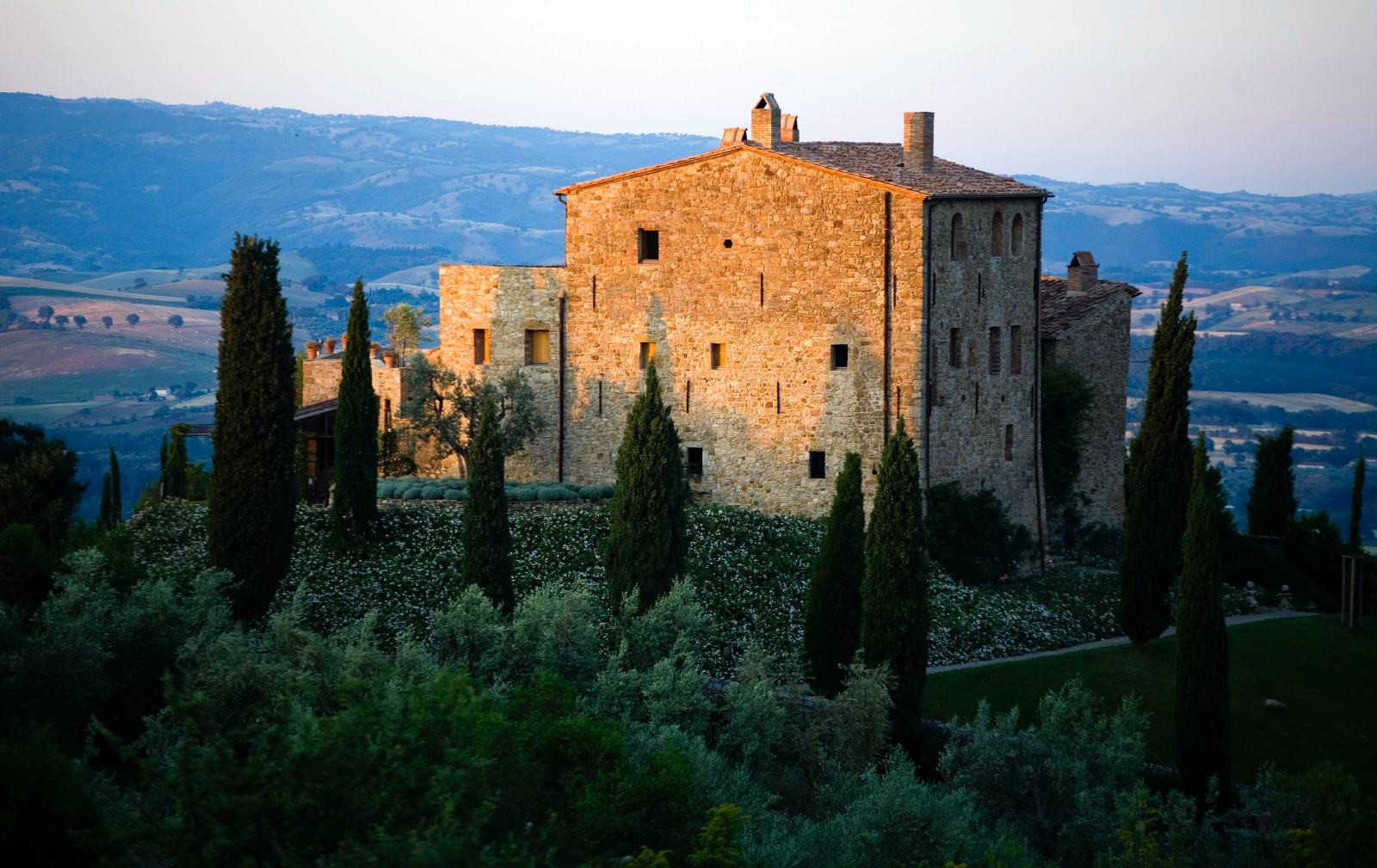
Set in the heart of Tuscany, Castello di Vicarello is a 12th century castle built by the Republic of Siena, some 900 years ago. When Carlo and Aurora Baccheschi Berti came across the property in the 1980s, it was in a dilapidated state. Beautifully restored since by the duo of aesthetes, the Castello sits in a sanctuary where uncontaminated nature prevails. Protecting both the historical and fertile nature of the land, the stylish couple brought it back to its former glory. Investing, from the early days, in a sustainable approach, the estate is rich with home-grown products. A dedicated team of gardeners grows over 50 varieties of vegetables and 30 aromatic herbs in its vegetable garden, also looking after olive groves and an award-winning vineyard.
Running this ‘earth-to-table’ approach are the owners’ three sons, Neri, Brando and Corso. They not only run nine individually designed suites (and are presently adding another six) but also looking into restoring the 11th century church, providing guests with unique, flavourful Tuscan dinners, and constantly improving the celebrated wines. With seven hectares of high-density, organically grown vineyards, the estate produces four varieties of organic wines. The ancient soil is rich in clay minerals, marine deposits and calcium.
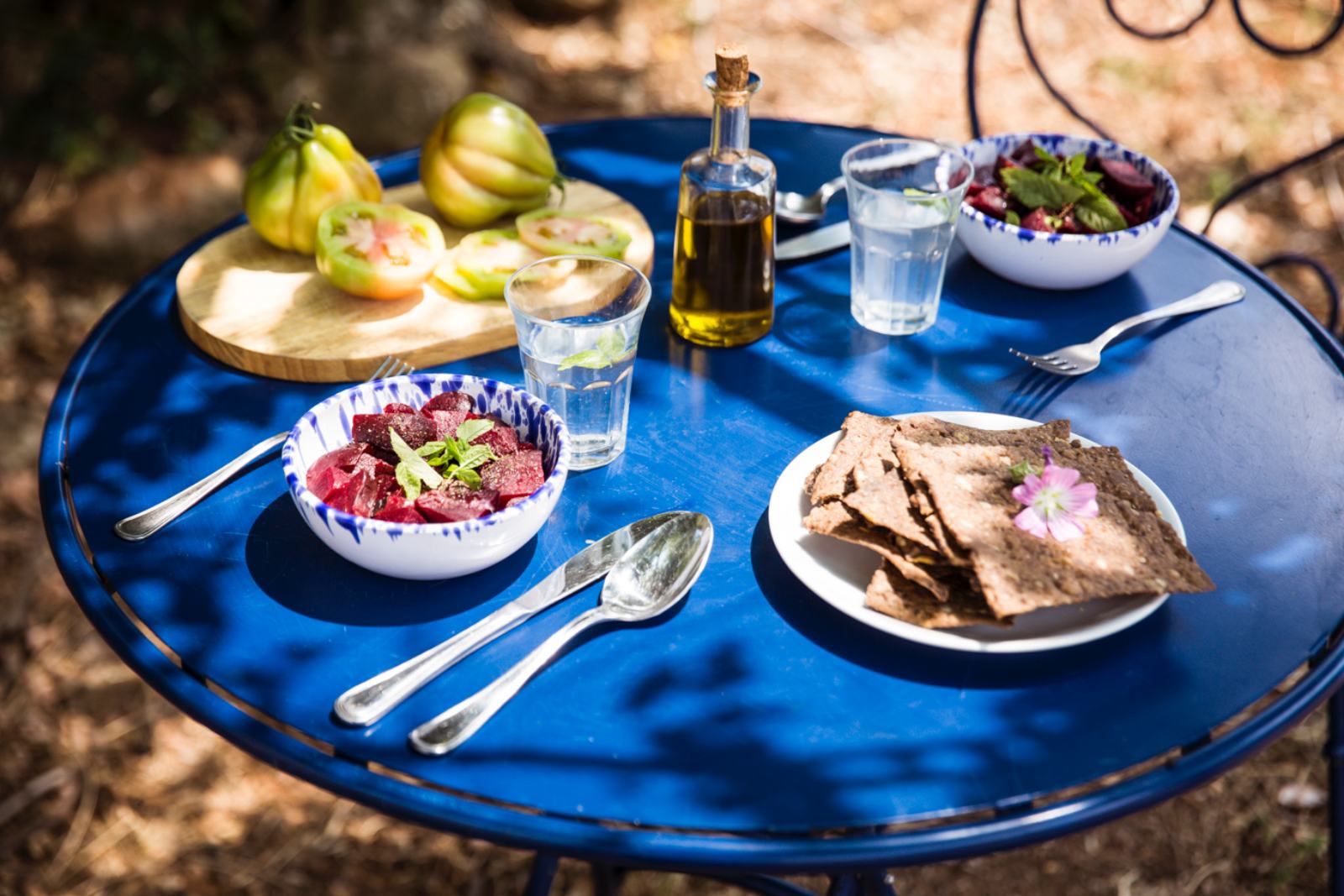
Also nested in the heart of Tuscany, Ebbio is the story of two women, a mother and a daughter, who turned a 13th century farmhouse in ruins into a healing destination surrounded by 17 acres of rustic countryside. “When my mother Francesca Bevilacqua bought the place in 1989, she was fleeing urban life. She wanted to live in harmony with nature, respect the seasons, and live sustainably. And to be surrounded by people who felt the same,” explains Sibilla de Vuono, who remembers her mother being ‘different’ when she was a child, imagining Ebbio as a place to heal and gather, reconnect with oneself and disconnect, long before cellphones even existed.
Thirty years in the making, the wellness retreat remains unique and ahead of its time. Run as a self-sustained farm, Ebbio lives by the words ‘ripe, fresh, in season, straight from the tree’. It produces all the fruits and vegetables used in the kitchen. Foraging brings additional surprises such as porcini mushrooms, chanterelles, asparagus or stinging nettles in season. Recipes are creative and traditions honoured. From cooking workshops to food preservation, nothing goes to waste.



